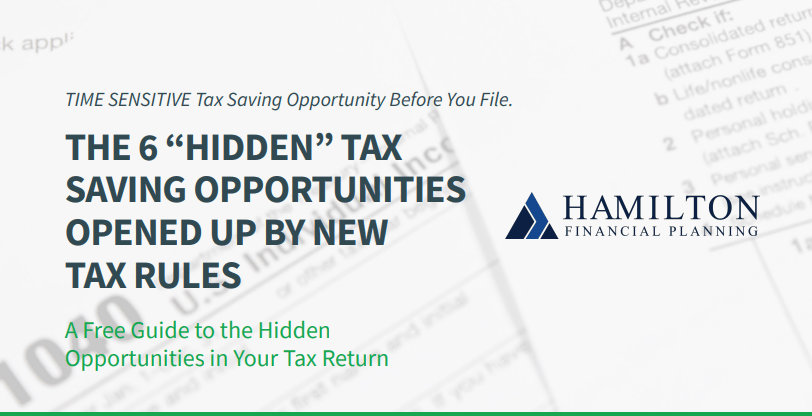
By Scott Hamilton, CFP®
Credit accounts are increasingly at risk from data breaches, phishing scams, doxxing, and other forms of cybercrime. While law enforcement works to combat these threats, credit account holders have a proactive tool to protect themselves from further criminal activity: the credit freeze.
Many consumers are asking themselves, “Should I freeze my credit?”
Though credit freezing and credit locking share similarities, there are key distinctions between these two methods of safeguarding against fraud, each offering its own level of protection and ease of use. Read on to learn the difference and how our team at Hamilton Financial Planning, LLC supports you in maintaining your security.
Table of Contents
What Is Credit Freezing?
When you freeze your credit, no parties other than yourself can readily access information about your account. The restricted information includes your Social Security ID, name, address, birth date, and credit history. A credit freeze shuts out banks and credit companies from obtaining that info, along with anyone else who wants to usurp your information for fraudulent activities.
Credit Freezing vs. Credit Locking
You may be Googling, “Should I freeze my credit or lock my credit?” Similar to credit freezing, credit locking restricts access to your credit information. Locks are generally issued by credit reporting companies—such as Equifax and Experian—upon the account holder’s request.
Credit locking can be more convenient to users since lock administration is in the hands of the company. With lock administration, you’re using the company’s resources and tools to lock the account up.
Since they still have access to your account information, the credit bureau can issue real-time alerts about possible fraudulent activity on your credit account. They might offer additional features, like credit monitoring and safeguarding against identity theft.
However, credit locking comes with some limitations. Your credit information is still accessible to the bureau that issued the lock. Although ending the freeze is fairly simple and can take effect immediately, users may well pay for the convenience with a monthly fee.
Steps to Take to Freeze Your Credit
A credit freeze is a little more work-intensive on your part and might take a little longer to complete. But it can be well worth the effort.
To freeze a credit account, the credit holder contacts all three credit bureaus (Experian, Equifax, and TransUnion) and requests the freeze. They generally issue the freeze to take effect within about five business days, whereas credit locks can usually be enacted immediately.
One of the biggest differences between freezes and locks is how you lift a freeze. The bureaus issue a unique PIN, with which you can easily halt the freeze temporarily if you need to apply for more credit. This gives you complete control over the frozen assets.
In addition, obtaining a credit freeze costs you nothing, unlike most locks that charge up-front fees. Also, credit freezes are supported and regulated by federal and state laws under the Fair Credit Reporting Act.
Regulators establish a framework with standards for safeguarding user privacy and information. Credit locks are not overseen by governmental agencies, but, rather, by the bureaus themselves.
Pros and Cons of Credit Freezing
Are you wondering, “Should I freeze my credit?” There are a few advantages and possible drawbacks to a credit freeze that you should consider.
Advantages of freezing your credit include:
- Total protection against new incidents of credit fraud
- No administrative charges or fees
- No impact on your credit score
The freeze can also last indefinitely until you cancel it.
It’s also important to consider the possible traps of freezing your credit:
- Can take more time to set up with each bureau
- Could delay other pending credit applications from approval
- May not prevent all forms of identity theft, like that used for non-credit reasons
- You may also have to manage three PINs for all the reporting agencies involved.
Some of these advantages and disadvantages may not matter to your big picture. It’s a wise decision to consult with your financial advisor before deciding.
Is Freezing Your Credit the Right Move? Consult an Advisor
At Hamilton Financial Planning, we guide our clients when they ask questions like, “Is freezing my credit the right decision?” Our primary mission is to empower you to make informed financial choices so you can pursue and enjoy a fulfilling retirement. And because we are fiduciary advisors, you can trust that we’re putting your best interests first, always.
Whether you’re already working with us or considering our services, we invite you to contact us to learn how we can help. Schedule a complimentary get-acquainted meeting online or reach out to us at 512-261-0808 or scott@hamiltonfinancialplanning.com.
About Scott
Scott Hamilton is founder and chief financial officer at Hamilton Financial Planning, a wealth management firm that specializes in providing comprehensive financial planning for retirees. With over 20 years of experience in the financial industry, and having completed over 250 financial plans for retirees across all industries, but mostly the oil and gas industry, Scott is passionate about providing his clients with the tools and insight they need to achieve their financial goals. He has a Bachelor of Business Administration in finance from Texas State University and an MBA in international finance from Pepperdine University. Scott has also been happily married to his wife, Gayle, for over 25 years. To learn more about Scott, connect with him on LinkedIn.

